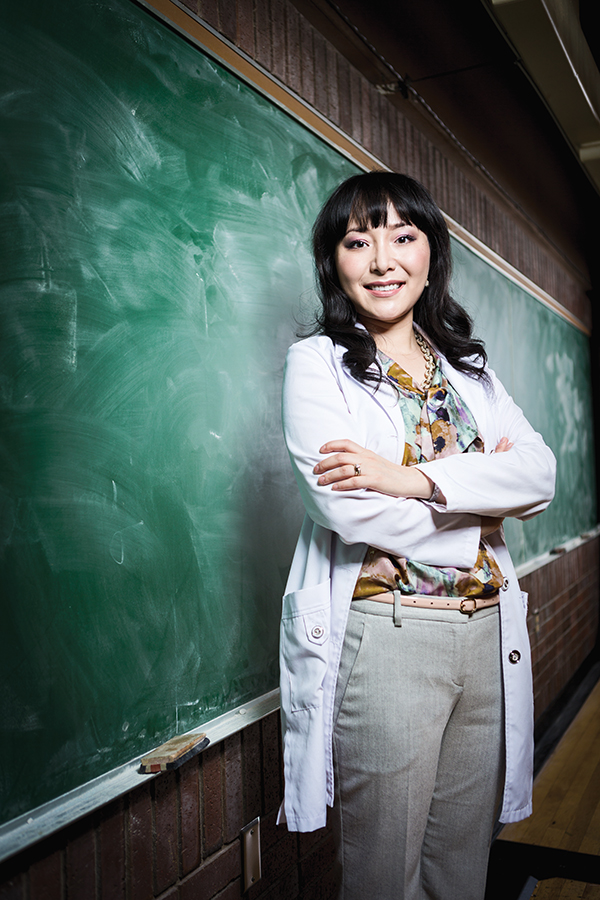Who: Melody Cheung-Lee
Age: 33
Job: Dermatologist and clinical lecturer
Experience: Skin is the largest organ we have, and everything from our genetics to the environment can affect how it looks and feels. How to keep skin healthy and supple can sometimes be a mystery – that’s where Dr. Melody Cheung-Lee comes in. She’s a dermatologist and FRCPC (Fellow of the Royal College of Physicians of Canada). Cheung-Lee completed a bachelor of medical science, medical school and her dermatology residency, all at the University of Alberta. She’s currently a clinical lecturer, in addition to running her own private dermatology practice in the Westgrove Professional Building. She can keep your skin in tip-top shape, but don’t mistake her for a facialist – she doesn’t do a lot of cosmetic dermatology. Cheung-Lee focuses on medical dermatology, checking patients for skin cancer and treating rare and unusual skin conditions.
– “Many patients believe their skin condition is directly caused by allergies or reactions, especially to foods, personal-care products, or environmental elements. While true skin allergies and reactions do exist, a large portion of skin conditions have little to do with external factors. Most are a result of a complex interplay of intrinsic or host factors, like genetics, that may sometimes be triggered or worsened, but not directly caused, by what is in the environment.
-“A common myth is that acne is caused by eating greasy foods and not cleaning the skin enough. Acne is a complex condition caused by multiple factors, including genetic predisposition, hormonal stimulation, and a certain “normal skin” bacteria found within the pores of the skin, to name a few. There have been studies linking milk and milk products to acne, but it’s still controversial and more research is needed in this area.
-“Not every skin type has the ability to tan. Tanning is a result of the skin’s natural built-in mechanism to increase melanin production as a protective mechanism against damaging UV rays. Think of it as a type of built-in sunscreen system. However, it is neither immediate nor sufficient enough for complete protection in most people. UV damage caused by sun exposure still happens.
